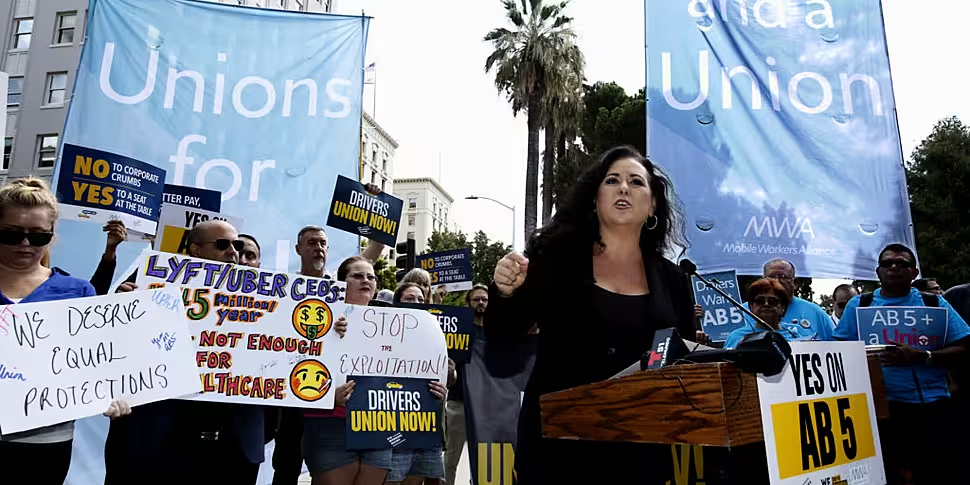The Californian Senate has passed a landmark bill aimed at giving employment protections to workers in the so-called gig economy.
Should the bill get final approval from the State Assembly it will hand wage and benefit protections to workers at companies like Uber and Lyft.
It will spell trouble for hundreds of companies that have built their business models on hiring people as contractors or freelancers rather than employees.
The AB5 bill, sponsored by California assemblywoman Lorena Gonzalez, passed the Senate by 29 votes to 11.
It has received international attention due to the worldwide trend towards major companies hiring people as freelancers instead of full employees.
A 2018 ESRI study found that “contingent” employment rose to 10% of total employment in Ireland during the recession – but has since fallen back to between 8% and 9%.
Over a million people are employed in this manner in the California and the bill received the backing of a number of Democratic US presidential candidates – including Elizabeth Warren, Bernie Sanders Kamala Harris and Julián Castro.
It has been widely opposed in Republican circles.
While it is expected to have the heaviest impact on companies in gig economy, it is expected to affect a wide array of industries.
BREAKING #AB5 has passed the CA Senate! This is a huge win for workers across the nation! It's time to rebuild the middle class and ensure ALL workers have the basic protections they deserve. Thank you to everyone who helped #DisruptInequality 🎉 @LorenaSGonzalez #YesonAB5
— California Labor Federation (@CaliforniaLabor) September 11, 2019
The California Labor Federation said the “misclassification” of workers has had a “corrosive effect that ripples through our entire economy, undermining our laws to protect and support working people.”
“AB5 is a powerful counter to the corporate greed and rampant exploitation that’s driving inequality across our state in emerging and traditional industries alike,” the federation said in a statement.
“This historic victory clears the way for the bill to become law, setting workers and their families on a path to a better future and ending abuses that are all-too-common.”
The bill would give effect to a California Supreme Court decision which set out new standards to determine whether workers are freelancers or employees.
Under the measure, workers must be designated as employees if a company exerts control over how they carry out their work or if their work is integral to the company’s regular business.
Uber and Lyft have proposed a referendum on the issue give California voters the opportunity to exempt drivers for ride-sharing services from the bill.









